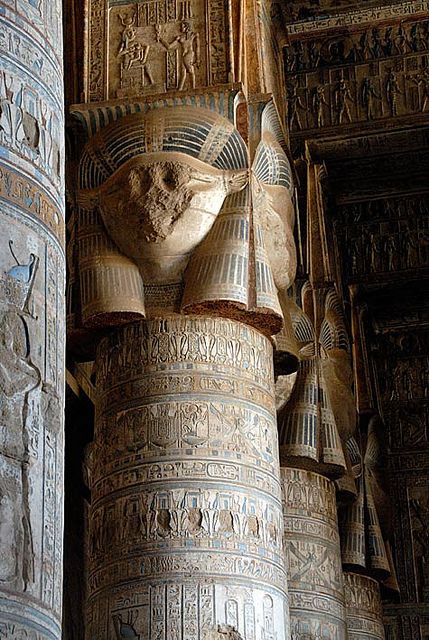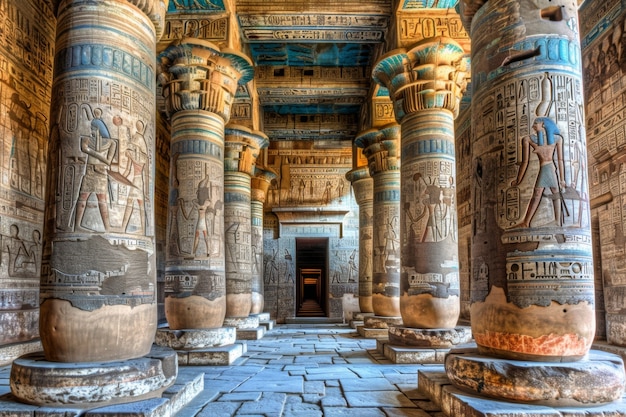The Grandeur and Intricacy of Ancient Egyptian Architecture
Ancient Egyptian architecture is known for its impressive grandeur and intricate designs. From towering temples to elaborately carved columns, these structures were not only functional but also deeply symbolic, reflecting the Egyptians’ connection to their gods and the afterlife.

Ornate Columns: Symbols of Power and Faith
The columns of ancient Egyptian temples, often crowned with Hathor-headed or papyrus-shaped capitals, are masterful examples of artistic craftsmanship. These columns were adorned with intricate carvings of deities, sacred symbols, and religious motifs, combining form with deep spiritual significance.
Hieroglyphs: Stories Etched in Stone
Hieroglyphs, the sacred script of ancient Egypt, covered the walls of temples and tombs, recording historical events and religious invocations. Each carving served not only as a historical record but also as a spiritual tool, believed to connect the earthly world with the divine.

Ceilings of the Divine: The Cosmos and Afterlife
The ceilings of many temples were decorated with vibrant astronomical scenes, symbolizing the Egyptians’ fascination with the cosmos and their beliefs in the afterlife. These celestial depictions reflected their understanding of the eternal cycle of life, death, and rebirth.
Monumental Scale: Engineering Marvels
The vastness of structures like the Hypostyle Hall at Karnak Temple is awe-inspiring. The colossal columns, towering overhead, stand as testaments to the Egyptians’ engineering expertise and the power of the pharaohs who commissioned these architectural marvels.

A Living Legacy: Egypt’s Enduring Influence
Today, these majestic temples and monuments continue to inspire awe and fascination. They remain a lasting legacy of ancient Egypt’s ingenuity, reflecting the culture’s blend of spirituality, artistry, and advanced engineering that continues to captivate the world.

